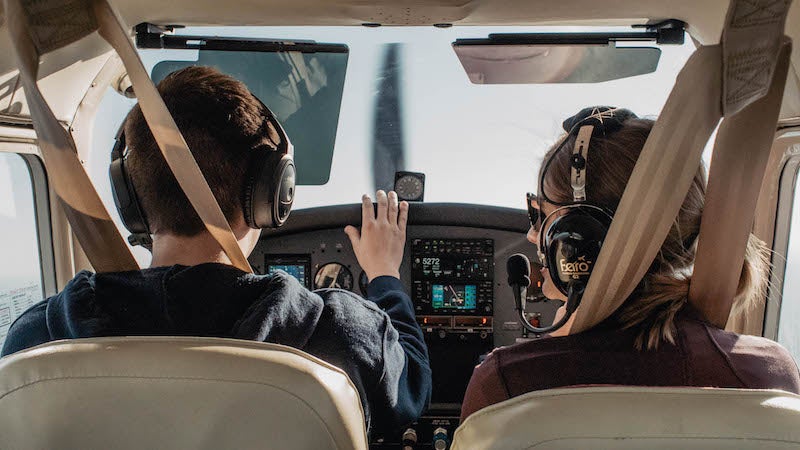For young pilots taking off at the Shelby County Airport, the journey in the skies is the real destination.
Air traffic above the Shelby County Airport’s runway bustles with young pilots earning flight-training hours. Taking a front row seat in the troposphere, these pilots behold a total view of the area, sometimes all the way to Birmingham landmarks like the Vulcan statue. In Shelby County, aviation thrives. You wouldn’t know just from looking at the level of activity at this public use airport and learning center in Calera that the United States is in the midst of a national pilot shortage.
Simply put, there are more pilots retiring than there are pilots-in-training. According to a July 2017 report from the research firm Cowen & Company, an estimated 42 percent of active pilots will retire by the end of 2026. The nation is crying out for pilots, but time and financial constraints prevent many aspiring aviators from meeting the demand.
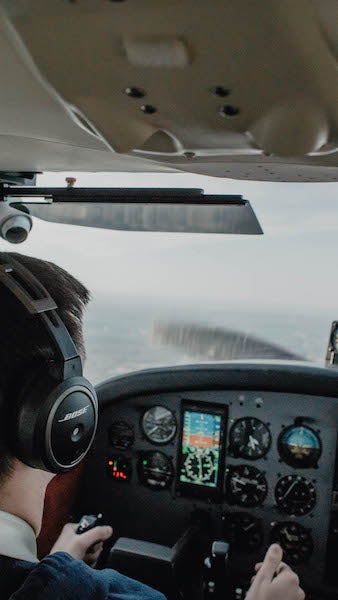
National legislation that took effect in 2013 increased the minimum number of required flight-training hours for commercial pilots from 250 hours to 1,500 hours. In addition to time, pilots invest a significant monetary stake in their profession. From first flying lessons to completing certification requirements, pilots spend an estimated $87,000, according to online reports from Coast Flight Pilot School. Specialty training certifications could potentially cost an additional $50,000 or more.
Time and money may be enough to keep some away from following a career in aviation, but for those who truly love to fly, surrendering to gravity is not an option. Sam Fink and Emma Percy are young pilots who burn up the runway at Shelby County Airport. These aviators are united in their mutual passion for flying and the unrivaled freedom pilots encounter in an open skyway.
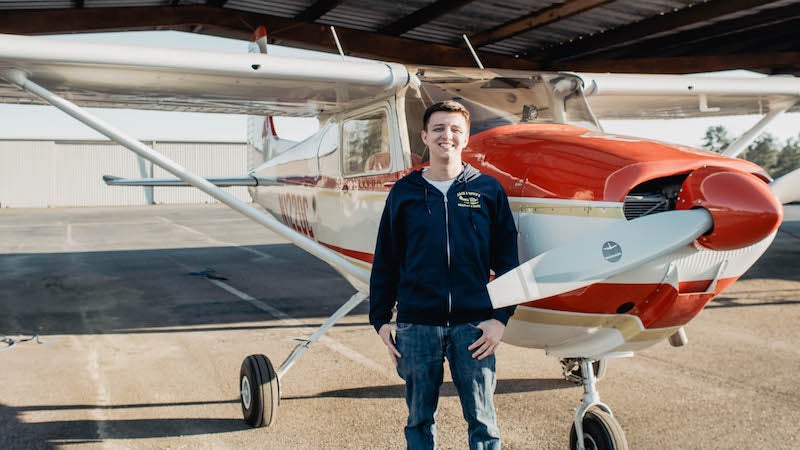
Sam Fink stands with his 1956 Cessna 182.
Fink is a third-generation pilot and a full-time college student studying religion. He logs flight-training hours in his 1956 Cessna 182. The aircraft was lovingly named “N1220 Charlie” after the wedding anniversary of Fink’s parents. Charlie is short for Claudia, the name of Fink’s mother.
Fink piloted the plane by himself for the first time at age 16. Now, at 22, he is working toward becoming a certified flight instructor. Eventually, Fink plans to work in missionary aviation.
“I have been blessed with the opportunity to pursue my passion in a way that I can do it as a career and use it to further the Kingdom of God,” he says.
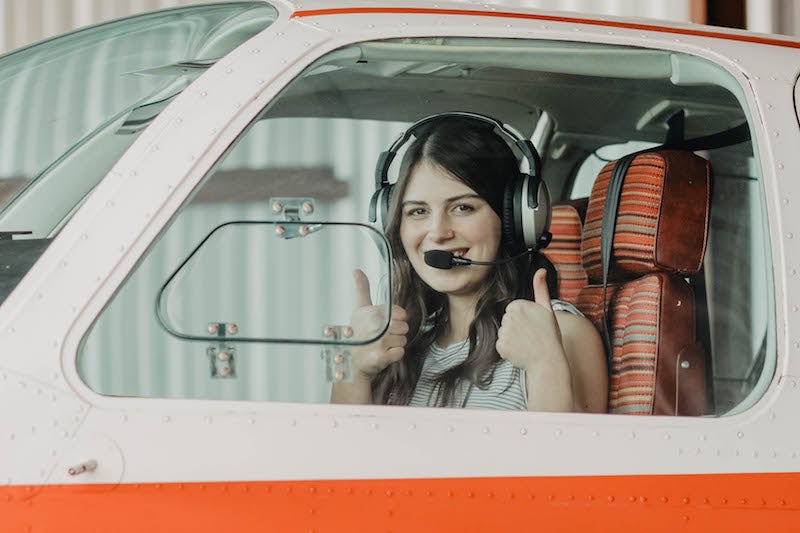
Pilot Emma Percy prepares to take off in her 1973 Bonanza V35.
Percy is a senior at Hewitt-Trussville High School, where she plays piccolo and flute in the school band. Between school and extracurricular activities, Percy logs flight-training hours on the weekends in her 1973 Bonanza V35.
Percy is one of the only female pilots who flies out of Shelby County Airport, and one of the few certified female pilots in the U.S. Only 7 percent of pilots in the United States are female, according to the General Aviation Manufacturers Association 2017 Annual Report.
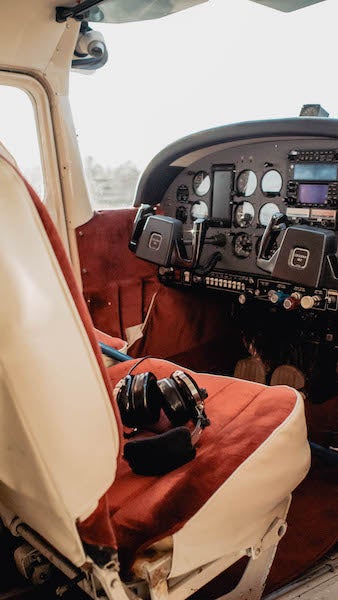
Percy acquired an interest in aviation from her father, Dwight Percy, who has been a certified private pilot since 1977. At 16, she took her first flight lesson at Shelby County Airport. After that, she says, “I was hooked.” In 2017, she gained her private pilot certification and plans to pursue a career as a regional airline pilot.
“For me, flying is very freeing,” Percy says. “There is something so peaceful about being able to just focus on my plane, the sky and absolutely nothing else.”
Nowadays, it is easy to take aviation for granted. Some perceive piloting as a pipe dream, or simply a means to an end, Fink explains. “But for people who love flying, the journey is the real destination.”
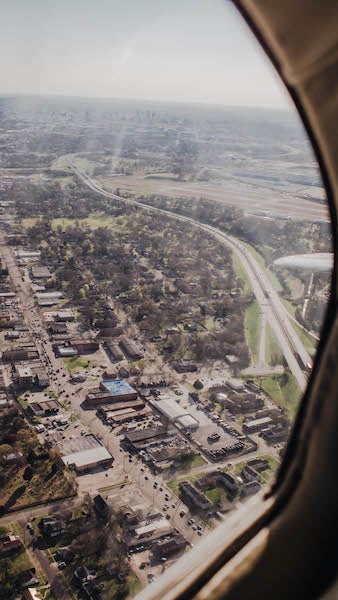
The pilots of Shelby County Airport have fostered a community in which aviation prospers and the dreams of pilots are never too far out of reach. The sky may be the limit for the Vulcan statue, but aspiring aviators in Birmingham are soaring to new heights.
This story and its photos were originally published in Volume Three, Issue One of The Local, an annual magazine published by students at Samford University.

